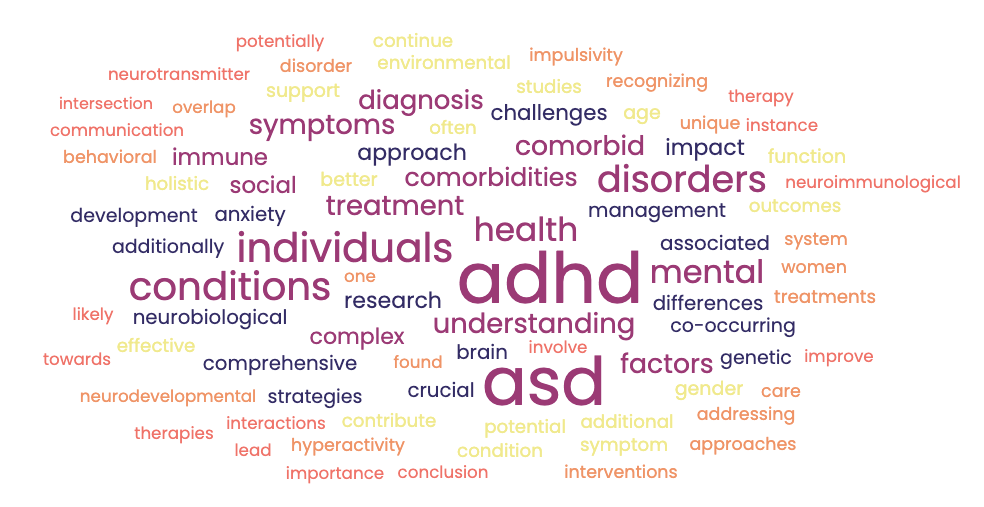Many individuals diagnosed with Multiple Sclerosis (MS) will tell you that they not only have to deal with the physical disabling features of MS but also with changes in cognition. Approximately 22-60% of individuals with MS report cognitive impairments in processing speed, new learning and memory, and executive functioning (organizing, problem solving, planning and execution). These difficulties can impact an individuals quality of life, their jobs, and activities of daily living. Many people with MS continue to wonder what they can do to improve their cognitive functioning.
In a recent study I co-authored with Dr. Beier from the University of Washington School of Medicine, we looked at the relationship between physical fitness and cognitive performance in people with MS (1). A total of 88 individuals with MS participated in this controlled trial (2). Participants had a choice in what health promotion activity they wanted to engage in. In this study we focused on those participants who chose to implement an exercise practice. We wanted to see if improving overall fitness through exercise could help improve the cognitive difficulties that MS patients face during the course of their medical condition. In order to do this the participants in this study were assessed on strength, aerobic fitness and cognition before and after exercising.
After controlling for the effects of demographic and disease characteristics (age, sex, ethnicity, education, disease activity and MS type), participants who showed improvement in either muscle strength and/or aerobic endurance also showed improvement in executive functioning (remember, this includes higher level cognitive skills such as problem solving, planning and execution, organizing etc.) after 12 weeks of exercise.
The results of this recent study supports findings from previous research which highlight the positive relationship between physical fitness and cognitive health in people with MS (3-5). Other studies have also shown that physical activity can help improve cardiovascular fitness, range of motion, reduce fatigue, improve flexibility, decrease muscle deterioration, and improve quality of life (6-9)
Physical Activity Recommendations
In the study I presented above, participants engaged in any physical activity of their choice. Some decided to walk daily, others engaged in swimming, some increased there activity by increasing the time they spend on household chores, others engaged in more structured exercises like lifting weights at the gym. So it is all up to you what type of physical activity you want to engage in. Whatever you decide to do just make sure it has both a strengthening and aerobic training (e.g., walking) component so you can get maximum benefits.
There really is no prescribed formula of physical activity that would yield the best outcomes. However, there are some evidence-based guidelines that do discuss the frequency, intensity, duration and type of exercise that would increase aerobic capacity and muscle strength. Current evidence-based guidelines are recommending moderate intensity aerobic activity 2 times/week and strength training 2x/week to increases aerobic capacity and muscular strength (10). So basically suggesting that one should try to exercise for a total of 4 days a week, two of the days would be focused on walking, cycling or whatever activity that will increase your aerobic capacity, and the other 2 days would focus on activities that improve muscle strengths (e.g., lifting). Remember always consult with your physician and physical therapist before engaging in any activity.
Here are some more specific tips to get you started*
1. Set daily goals- The likelihood of completing an activity is higher if the goal is actually written down on paper. So set daily goals and do your best to complete it!
2. Prepare– Pick a cool, well-ventilated area, wear loose clothing and always have water with you.
3. Get proper shoes– Since stability could potentially be an issue for some people with MS, you will want to invest in some tennis shoes that will help maximize balance.
4. Track activity– If you have a pedometer or even an iPhone use it to track your level of activity. Studies show that those who use activity tracking end up walking or exercising more. Unless you are in a wheelchair this is an effective way to built up your exercise program and can even be helpful in keeping you moving when you are at home.
5. Pace your activity-Don’t dive into a challenging workout. The likelihood of drop-out is higher when you take on something difficult and get discouraged because you were unable to complete it. Also, recommendations state that you should start with 10 minutes/day and build up to 40 minutes gradually.
6. Do your activity in intervals– As many of you know fatigue and weakness will come on quickly. Take frequent breaks if needed.
7. Talk to your Physician– Be sure to consult with your provider before starting any exercise program. You insurance will likely cover the initial cost of seeing a physical therapist (PT) so take advantage of consulting with a PT who can help you tailor your exercises and improve your technique.
*Always consult with your physician and physical therapist before starting any exercise program.
This study was presented to the European Committee for Treatment and Research in Multiple Sclerosis (ECTRMS), October 4, 2013, Copenhagen, Denmark and Published in Archives of Physical Medicine and Rehabilitation March, 4, 2014.
REFERENCES
1. Beier, M., Bombardier, C. H., Hartoonian, N. Motl, R., Kraft, G. (2014) Is improved physical fitness associated with improved cognition in multiple sclerosis? Archives of Physical Rehabilitation and Medicine. DOI: 10.1016/j.apmr.2014.02.017
2. Bombardier CH, Cunniffe M, Wadhwani R, Gibbons LE, Blake KD, Kraft GH. The efficacy of telephone counseling for health promotion in people with multiple sclerosis: a randomized controlled trial. Arch Phys Med Rehabil 2008;89:1849-56.
3. Motl RW, Sandroff BM, Benedict RH. Cognitive dysfunction and multiple sclerosis: developing a rationale for considering the efficacy of exercise training. Mult Scler 2011;17:1034-40.
4. Prakash RS, Snook EM, Erickson KI, et al. Cardiorespiratory fitness: a predictor of cortical plasticity in multiple sclerosis. Neuroimage 2007;34:1238-44.
5. Sandroff BM, Motl RW. Comparison of ActiGraph activity monitors in persons with multiple sclerosis and controls. Disabil Rehabil 2013; 35:725-31.
6. Prakash RS, Snook EM, Motl RW, Kramer AF. Aerobic fitness is associated with gray matter volume and white matter integrity in multiple sclerosis. Brain Res 2010;1341:41-51.
7. Motl RW. Physical activity and irreversible disability in multiple sclerosis. Exerc Sport Sci Rev 2010;38:186-91.
8. Motl RW, Arnett PA, Smith MM, Barwick FH, Ahlstrom B, Stover EJ. Worsening of symptoms is associated with lower physical activity levels in individuals with multiple sclerosis. Mult Scler 2008;14:140- 2.
9. Motl RW, Weikert M, Suh Y, Dlugonski D. Symptom cluster and physical activity in relapsing-remitting multiple sclerosis. Res Nurs Health 2010;33:398-412.
10. Latimer-Cheung, A. E., Martin Ginis, K. A., Hicks, A. L., Motl, R. W., Pilutti, L. A., Duggan, M., . . . Smith, K. M. (2013). Development of evidence-informed physical activity guidelines for adults with multiple sclerosis. Arch Phys Med Rehabil, 94(9), 1829-1836 e1827. doi: 10.1016/j.apmr.2013.05.015








